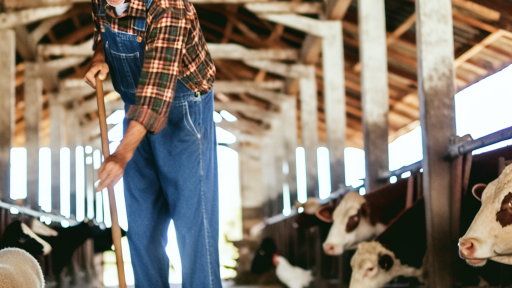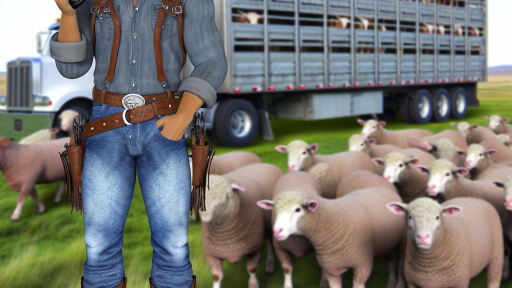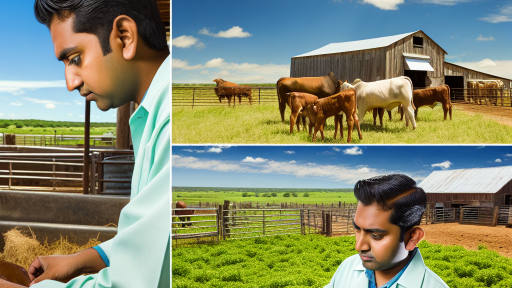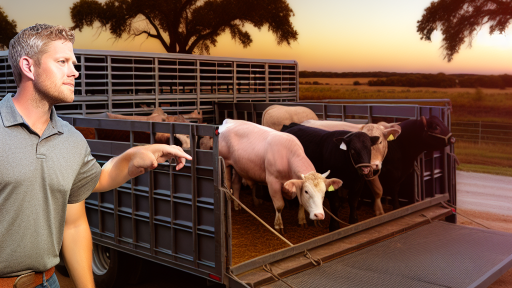Introduction to Sustainable Livestock Practices
Sustainable livestock practices aim to reduce environmental impact.
They enhance animal welfare and promote efficient resource use.
Effective handling and transport methods are crucial in this regard.
Importance of Animal Welfare
Animal welfare plays a significant role in sustainable livestock practices.
Prioritizing animal health leads to better productivity.
Healthy animals provide higher quality products for consumers.
Moreover, welfare-friendly practices reduce stress and injury during transport.
Resource Efficiency
Resource efficiency is a core principle of sustainable livestock handling.
Improving feed efficiency minimizes waste and maximizes productivity.
Using less water in raising livestock helps conserve vital resources.
Additionally, sustainable practices lower greenhouse gas emissions.
Innovative Transportation Techniques
Transportation methods directly impact livestock well-being.
Using low-stress handling techniques during loading is essential.
Transport vehicles should ensure comfortable conditions for the animals.
Further, optimizing travel routes reduces transit time and stress.
Transform Your Agribusiness
Unlock your farm's potential with expert advice tailored to your needs. Get actionable steps that drive real results.
Get StartedCommunity Involvement and Education
Engaging the community promotes the adoption of sustainable practices.
Education helps farmers understand the benefits of these approaches.
Workshops and training sessions can provide valuable insights.
Collaboration within the local agricultural community fosters innovation.
Environmental Impact of Traditional Livestock Handling
Resource Consumption
Traditional livestock handling consumes significant resources.
Facilities require extensive water and feed.
Additionally, energy usage rises during transport.
This consumption stresses local ecosystems.
Waste Generation
Livestock operations produce large volumes of waste.
Manure contributes to soil and water pollution.
Furthermore, improper disposal methods exacerbate these issues.
Greenhouse Gas Emissions
Livestock handling contributes notably to greenhouse gas emissions.
Methane emissions arise from digestion processes in ruminants.
Transport operations further increase carbon footprints.
Consequently, these emissions threaten climate stability.
Impact on Biodiversity
Traditional livestock handling practices harm biodiversity.
Land conversion for grazing reduces natural habitats.
This habitat destruction endangers native species.
Moreover, overgrazing leads to soil degradation.
Water Quality Degradation
Livestock waste can contaminate local waterways.
Nutrients and pathogens from manure compromise water quality.
As a result, aquatic ecosystems suffer significantly.
Looking Ahead
It is clear that traditional practices have a profound impact.
Shifting to sustainable practices will help mitigate these effects.
Showcase Your Farming Business
Publish your professional farming services profile on our blog for a one-time fee of $200 and reach a dedicated audience of farmers and agribusiness owners.
Publish Your ProfileAddressing these issues is critical for future generations.
Principles of Sustainable Animal Husbandry
Animal Welfare
Sustainable animal husbandry prioritizes animal welfare at all stages.
This means providing adequate space, nutrition, and social interaction.
Animals should express natural behaviors comfortably.
Additionally, regular health checks are essential for wellbeing.
Resource Management
Efficient resource management is vital for sustainability.
Farmers should optimize feed, water, and land use effectively.
Utilizing renewable resources minimizes environmental impact.
Composting manure supports soil health and fertility.
Genetic Diversity
Maintaining genetic diversity enhances resilience in livestock populations.
This reduces vulnerability to disease and environmental changes.
Farmers should prioritize local breeds that adapt well to specific climates.
Conserving diverse breeds promotes biodiversity on farms.
Environmental Protection
Protecting the environment is a key principle of sustainable practices.
This includes minimizing pollution from waste and chemicals.
Adopting agroecological practices supports biodiversity in farming.
Buffer zones near water bodies prevent contamination from runoff.
Community Engagement
Involving local communities strengthens sustainable practices.
Farmers should share knowledge and resources with peers.
Supporting local economies through ethical sourcing is vital.
Moreover, transparency about practices builds consumer trust.
You Might Also Like: Livestock Breeding Best Practices for Farmers
Ethical Considerations in Livestock Transport
Humane Treatment During Transit
Humanity obligates us to treat livestock with respect during transport.
This begins with proper handling techniques that reduce stress.
Implementing gentle driving practices can prevent injuries and fear.
Long trips can pose significant welfare issues for animals.
Thus, regular breaks are crucial for mental and physical health.
Transportation Conditions
Safe and comfortable vehicles elevate livestock welfare significantly.
Ventilation keeps animals cool and mitigates respiratory problems.
Additionally, adequate space prevents overcrowding and injuries.
Animals should have access to water throughout their journey.
Appropriate bedding provides cushioning and insulation from weather extremes.
Legal and Regulatory Framework
Various regulations exist to dictate the treatment of livestock during transport.
Organizations like the Animal Welfare Act enforce humane transport standards.
Compliance with these regulations ensures the safety and welfare of animals.
Civil penalties may arise from failing to adhere to such laws.
Accountability and Transparency
Producers must be transparent regarding transport practices.
Documenting movements and conditions can build consumer trust.
Third-party audits promote adherence to best welfare practices.
Furthermore, sharing transport protocols encourages industry-wide improvements.
Showcase Your Farming Business
Publish your professional farming services profile on our blog for a one-time fee of $200 and reach a dedicated audience of farmers and agribusiness owners.
Publish Your ProfileInnovative Alternatives
Exploring innovative transportation methods can enhance livestock welfare.
Train systems can sometimes provide more stable and comfortable environments.
Using technology, such as monitoring systems, helps ensure animal welfare standards.
Investments in research can lead to more humane livestock transport practices.
Learn More: Regulatory Compliance and Standards in Aquaculture
Best Practices for Animal Welfare During Transport
Understanding Animal Needs
Animals require specific conditions for comfort during transport.
Understanding these needs ensures their welfare is prioritized.
Each species has unique requirements regarding space, temperature, and ventilation.
Meeting these needs enhances their well-being and reduces stress.
Pre-Transport Preparation
Proper preparation is vital for successful livestock transport.
Before transport, assess the animals for signs of health and fitness.
Use trained personnel to handle and load the livestock carefully.
Additionally, ensure vehicles are clean and suitable for the animals’ type.
Optimal Transport Conditions
Transport conditions must align with animal welfare standards.
Maintain appropriate ventilation to provide fresh air throughout the journey.
Moreover, manage temperature to prevent heat stress or hypothermia.
Regularly check animals for signs of distress or discomfort during transport.
Duration and Timing
Minimizing transport duration is crucial for animal welfare.
Plan routes efficiently to reduce travel time.
When possible, transport during cooler parts of the day to avoid heat.
Schedule regular breaks for animals during longer journeys.
Post-Transport Care
Post-transport care significantly impacts animal recovery.
Upon arrival, provide animals with access to food and water.
Allow animals time to rest and acclimate to their new environment.
Monitor them closely for any signs of injuries or distress.
Continuous Training and Improvement
Investing in training for handlers improves livestock welfare outcomes.
Regular workshops updating staff on best practices are essential.
Additionally, gather feedback to identify areas for improvement.
Commit to continuous improvement in livestock handling and transport procedures.
Explore Further: Choosing the Right Exotic Livestock for Your Farm
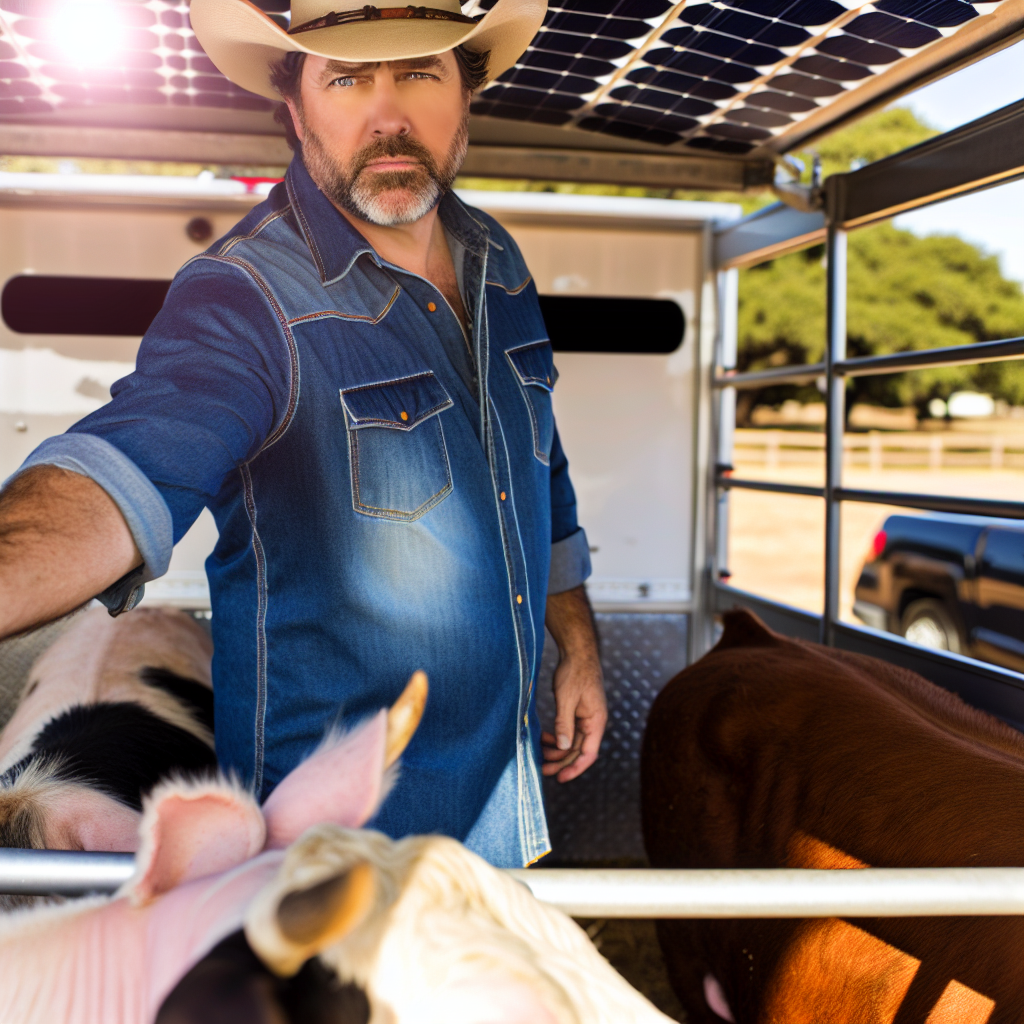
Implementing Sustainable Feeding Practices in Livestock
Understanding Sustainable Feeding
Sustainable feeding promotes animal health and productivity.
It encourages the use of local feed resources.
Farmers can reduce the carbon footprint with sustainable feed options.
Types of Sustainable Feed Options
Organic feed is one popular choice among farmers.
Many farmers also use non-GMO options.
Additionally, using byproducts from other industries can be sustainable.
- Brewer’s grains
- Distillers’ grains
- Food waste from local sources
Cooperative Feeding Programs
Farmers can join cooperative programs to share resources.
Cooperative programs reduce costs and enhance feed quality.
They promote the use of local feed suppliers.
Farmers benefit through improved bargaining power.
Showcase Your Farming Business
Publish your professional farming services profile on our blog for a one-time fee of $200 and reach a dedicated audience of farmers and agribusiness owners.
Publish Your ProfileMonitoring and Evaluating Feeding Practices
Regular monitoring helps assess the effectiveness of feeding strategies.
Producers should track animal health and performance metrics.
Adjustments can improve sustainability and efficiency.
Farmers can employ technology for better data collection.
Training and Education
Providing education on sustainable feeding is crucial.
Workshops can teach innovative feeding techniques.
Farmers should be encouraged to share knowledge and resources.
Engagement from local agricultural extensions promotes best practices.
See Related Content: Building Durable Livestock Housing Structures
Technological Innovations in Livestock Handling and Transport
Introduction to Innovations
Technological advancements transform livestock handling and transport practices.
These innovations enhance animal welfare and sustainability.
Moreover, they improve operational efficiency for farmers and transporters.
Smart Transport Systems
Smart transport systems play a vital role in modern livestock transportation.
They use GPS technology to track animals during transit.
This tracking system reduces stress on animals by providing real-time information.
Furthermore, it allows timely interventions if problems arise.
Temperature Regulation
Maintaining the right temperature is crucial during transport.
Advanced climate control systems help achieve this goal.
These systems adjust temperatures automatically based on outside conditions.
Consequently, they ensure a comfortable environment for livestock.
Automated Handling Equipment
Automated handling equipment enhances the efficiency of livestock management.
For instance, sorting gates and hydraulic lifts reduce manual labor.
These tools minimize human errors and speed up handling times.
As a result, they lower stress levels for the animals.
Health Monitoring Technology
Health monitoring technology plays a key role in animal care.
Wearable devices track vital signs and behaviors of livestock.
This data helps farmers identify health issues early.
Additionally, it supports proactive care, improving overall herd health.
Data Analytics
Data analytics further enhances livestock management practices.
It utilizes collected data to predict trends in animal health.
Farmers can adjust their practices based on these insights.
Consequently, they foster healthier livestock and higher productivity.
Implications for the Future of Livestock Management
Technological innovations reshape livestock handling and transport methods.
As the industry adopts these advancements, both animals and producers benefit.
Ultimately, these changes contribute to a more sustainable future in agriculture.
Case Studies of Successful Sustainable Livestock Operations
Green Pastures Ranch
Green Pastures Ranch exemplifies sustainable livestock management.
This operation utilizes rotational grazing techniques effectively.
As a result, they maintain healthy pastures and soil quality.
The ranch has reduced feed costs significantly.
Moreover, they implement water conservation practices.
Showcase Your Farming Business
Publish your professional farming services profile on our blog for a one-time fee of $200 and reach a dedicated audience of farmers and agribusiness owners.
Publish Your ProfileThis approach minimizes environmental impacts while maximizing productivity.
Blue Sky Farms
Blue Sky Farms integrates technology into their livestock operations.
They use GPS tracking for efficient herd management.
This tool enables precise monitoring of livestock health.
Consequently, farmers can act quickly on potential issues.
Also, this technology optimizes pasture usage and feed efficiency.
As a result, Blue Sky Farms maintains low operational costs.
Sunny Meadows Organic Farm
Sunny Meadows focuses on organic methods in livestock handling.
They provide free-range conditions for their animals.
This practice enhances animal welfare and health.
Additionally, the farm uses natural feed sources exclusively.
This ensures the livestock remain hormone and antibiotic-free.
Moreover, this operation emphasizes biodiversity on their farm.
Eco Herd Solutions
Eco Herd Solutions specializes in educational programs for sustainable transport.
They teach farmers best practices for humane transport of animals.
This education reduces stress for livestock during transport.
Furthermore, it ensures compliance with animal welfare regulations.
The company also partners with transport providers focused on sustainability.
Thus, Eco Herd Solutions helps to establish better industry standards.
Additional Resources
Livestock and Climate Change | College of Agricultural and …
USDA Publishes New Standards for Organic Livestock and Poultry …

